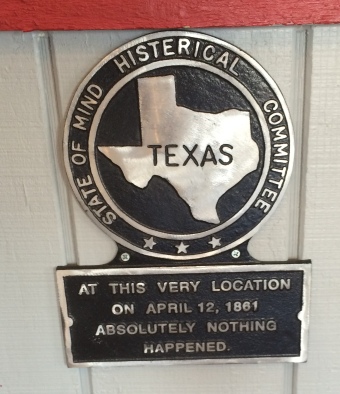On the first or second day of class each semester, I always do some version of my “What is History?” lesson with students. This lesson introduces major ideas and terms (such as agency, mores, etc) that I use all of the time. We also spend a great deal of time talking about various definitions of history.
One of the very first questions I ask in this lesson–and that we talk about all semester–is, “What is the difference between history with a little “h” and History with a capital “H”?”
Usually, they get pretty close.
[h]istory with a little “h” is anything and everything everywhere that has ever happened. Most of history (or the past) is not recorded. One example I use is what you had for breakfast ten years ago today is history with a little “h”. It’s history, it’s the past, it had some small impact on the world for sure, but there is no “evidence” of it and it is not deemed “important” in larger historical narrative and trajectories.
History with a big “H” is the study of the past, the writing of the past. It’s the history that we know and have access to. It’s the events and peoples we study in this class. It’s a socially constructed narrative based on available evidence, mores, hopes, fears, etc, and changes as all of these factors adjust.
I see history and History e-v-e-r-y-w-h-e-r-e.
Had supper this evening, and noticed this very disturbing sign:

The idea that nothing happened in a given spot privileges “Great Men History” per se. In the particular spot where this sign was specifically and in the area more generally, hundreds and hundreds of enslaved individuals forcibly worked for abusive enslavers. Women cooked and cleaned. Etc. We have numerous records of these people and events in the particular spot in question.
This sign also privileges human life. In the particular spot in question, animals and plants and the broader environment also operated in a symbiotic relationship and lived and did things.
So of course many, many things happen in e-v-e-r-y particular spot and happen all the time. Most of these become history and not History. But that does not make it permissible to ignore it. Recognition is the first step toward something becoming History.
Additionally the date used–April 12, 1861–has significance as the date when slave-holding states in the South fired what is considered the first shot of the Civil War. Texas was very clearly and very deeply involved in the Civil War for the purpose of maintaining enslavement. So on this particular date, especially this particular date, a lot would have been happening in Texas directly and indirectly related to events far away with the official military beginning of the Civil War.
Rhetoric and History and history mater.